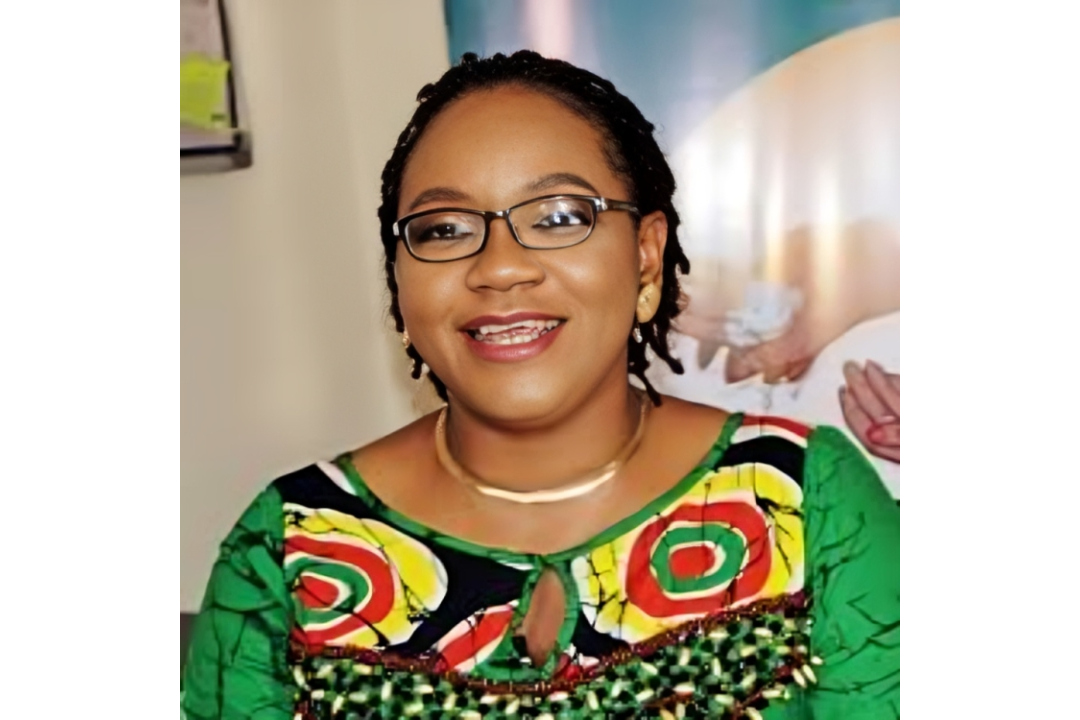Health
Nigeria, 7 others Begin African-led HIV Vaccine Development

Nigeria and seven other African countries have begun a project to check HIV in the continent.
The project is tagged, Bringing Innovation to cLinical and Laboratory research to end HIV In Africa through New vaccine Technology (BRILLIANT) for HIV vaccine research and development.
Prof Alash’le Abimiku, Executive Director, International Research Centre of Excellence, Institute of Human Virology (IHVN), disclosed this at a press briefing on Thursday in Abuja.
The theme of the briefing was, “HIV Vaccine, Innovation, Science, and Technology Acceleration in Africa (HIV-VISTA) study.”
Abimiku said that the countries involved were Nigeria, South Africa, Zambia, Zimbabwe, Tanzania, Uganda, Kenya, and Mozambique.
She said that the objective of the consortium is to evaluate HIV vaccine candidates emanating from the continent.
She added that the initiative was to harness and catalyse African scientists to contribute to an effective HIV vaccine.
“Through these efforts, African institutions will be encouraged to become more autonomous, generate domestic resource support, and form partnerships with the private sector.
“It will possibly create a more sustainable system for HIV vaccine research and development, which is progressively and inordinately dependent on the U.S government,” she said.
She expressed optimism that the partnership will acknowledge the potential of great innovation and science from Africa to solve global health challenges especially those that disproportionally devastate the continent.
Dr Temitope Ilori, Director-General, National Agency for the Control of AIDS (NACA), said that HIV still persisted in spite of efforts at controlling it, hence the need for new tools for prevention.
“The agency has continued to provide preventive measures, but an effective vaccine is crucial to our efforts.
“The BRILLIANT study offers hope for a vaccine tailored to the needs of our population, and Nigeria’s involvement in this global initiative is critical.
“Our participation supports both local and international efforts to end AIDS and brings us closer to a vaccine that could save countless lives across Africa and beyond,” she said.
She said that the BRILLIANT study exemplified the strength of global collaboration and scientific progress.
“Together, we can achieve our shared goal of eradicating HIV worldwide, and Nigeria is honoured to play a vital role in this endeavor,” she said.
Dr Ezekiel James, the Deputy Director of the office of HIV/TB from U.S. Agency for International Development (USAIDS), said that the study offered opportunity for stakeholders to combine efforts to achieve HIV epidemic control.
Similarly, Dr Leo Zekeng, UNAIDS Country Director, stressed the need to engage the community to create awareness of HIV vaccines and similar research that continues to break HIV transmission rates.
The World Health Organisation (WHO) had, on Tuesday, named HIV, malaria, Tuberculosis, and 14 other pathogens as top priorities for new vaccine development.
Also, according to UNAIDS, there are an estimated 39.9 million people living with HIV across the globe in 2023, with an estimated 1.3 million new infections.
Africa has about 25.9 million (65 per cent) of the global burden with Nigeria, contributing about 1.9 million, making it the fourth largest HIV burden country globally.
The USAIDS awarded more than 45 million dollars to the BRILLIANT consortium through a competitive process to implement a cooperative agreement under the BRILLIANT project. (NAN)
Foreign News
WHO: Social Factors Outweigh Genetics In Shaping Global Health

Housing, income, education, and other social conditions have a greater impact on health than genetics or the quality of health-care systems, according to a new World Health Organisation (WHO) study.
The research, set to be presented and live-streamed from Geneva on Tuesday, found that social determinants such as poverty, discrimination, and lack of access to resources account for more than 50 per cent of health outcomes.
These “social determinants of health equity” include the environments in which people are born, live, work, and age, as well as their access to power, money, and opportunity.
“These factors create unjust and avoidable health gaps,” said WHO Director-General Dr Tedros Adhanom Ghebreyesus.
“Billions of people face higher risks of illness and death simply because of the conditions they’re born into or the social groups they belong to.”
Tedros emphasised that much of the global disease and mortality burden was preventable, calling health inequity a result of political and social decisions that global leaders had the power to change
Health
NCDC Urges Stronger Hand Hygiene Culture In Healthcare

As part of activities to mark the 2025 World Hand Hygiene Day, the Nigeria Centre for Disease Control and Prevention (NCDC) has emphasised that hand hygiene is not just a clinical procedure.
It is a moral obligation and a public health imperative that must be embedded in the culture of healthcare delivery nationwide.
Dr Tochi Okwor, Head of Disease Prevention and Control at the NCDC, said this on Monday during a commemorative event held at Maitama District Hospital in Abuja.
Okwor reiterated that hand hygiene remained one of the most effective measures for preventing healthcare-associated infections (HAIs), limiting the spread of antimicrobial resistance (AMR), and ultimately saving lives.
“The theme for 2025 campaign, ‘It Might Be Gloves. It’s Always Hand Hygiene,’ highlights the misconception that wearing gloves alone is enough to prevent infection.
“Gloves can become sources of contamination if not used properly or if hand hygiene is neglected before and after use.
“Glove stewardship, like antimicrobial stewardship, must be grounded in evidence, risk assessment, and responsible use,” she added.
Highlighting Nigeria’s progress in infection prevention and control (IPC), Okwor noted significant achievements, including the implementation of the Turn Nigeria Orange (TNO) movement, which assessed and strengthened IPC systems across the country.
She explained that the agency had established the Orange Network, a cohort of healthcare facilities serving as centres of excellence for IPC, antimicrobial stewardship (AMS), WASH, and diagnostics.
“Other key milestones include the launch of a national IPC policy and five-year strategic plan, the establishment of a dedicated IPC budget line at the federal level, and the training of more thsn 393 certified IPC professionals.
“We’ve also developed a draft IPC legal framework, formed operational technical working groups at national and state levels, and rolled out HAI surveillance systems for real-time infection detection and response,” she said.
While policies and protocols were vital, she emphasised that true progress lied in building a culture where hand hygiene was a lived practice embraced by healthcare workers, administrators, patients, and communities.
“We must move beyond compliance to foster a culture supported by leadership role-modelling, data-driven feedback, and patient empowerment,” Okwor said.
She noted that Nigeria’s IPC strategy aligned with the WHO’s Global IPC Strategy (2024–2030), supporting national health goals such as Universal Health Coverage and Primary Health Care revitalisation.
“Let every clean hand be a declaration that safety matters, that patients deserve better, and that no one should be harmed in the process of care,” she added.
Dr Rita Idemudia, Medical Director of Maitama District Hospital, stressed the significance of consistent hygiene practices in both healthcare and community settings.
“About 60 per cent of diseases can be prevented through proper hand hygiene,” she said, adding that regular handwashing was one of the most cost-effective ways to reduce infections and promote public health.
The event lauded institutions like Maitama District Hospital for translating national IPC policies into practice, setting benchmarks in implementation and demonstrating a commitment to patient safety.
The World Health Organisation (WHO) observes May 5 each year as World Hand Hygiene Day to raise global awareness about the importance of clean hands in preventing infections and safeguarding healthcare systems.
The event ended with a call to action urging all healthcare stakeholders to recommit to hand hygiene as a life-saving practice, one that must never be overlooked, regardless of gloves or other protective equipment in use.
Health
FG Reiterates Commitment To Prioritize Women’s Health, Well-Being

The Senior Special Assistant to President Bola Tinubu on Women’s Health, Dr Adanna Steinacker, has reiterated the Federal Government’s commitment to prioritize and improve the health and well-being of women across the country.
Steinacker said this on Saturday in Lagos during the Banking on Women’s Health Conference organised by Healthtracka, a digital health platform.
She assured Nigerian women that their health would no longer be a footnote but a front-page priority, emphasising her commitment to championing the advocacy through her office.
According to her, conversations that are critical to moving women’s health agenda forward are often silenced, stressing the need to share the stories openly to educate, support, and connect with other women.
“The absence of intentional storytelling has left too many women isolated in their pain.
“They followed us into adulthood, through illnesses, through birth stories, miscarriages, fertility challenges, postpartum complications, and now for some of us, into menopause.
“That discomfort has now become my purpose, to break the silence and to build a new culture, one where women’s health is spoken about loudly, boldly, and backed by action,” she said.
Steinacker highlighted the Women’s Health Media Hub, a digital-first platform designed to bridge the gender health information gap for Nigerian women as an initiative of her office.
“This platform will provide accessible, culturally attuned, evidence-based content so women across Nigeria can make informed decisions about their health,” she said.
She also highlighted the Healthy Women, Healthy Nations National Advocacy Campaign, a mobilisation platform comprising a series of sub-campaigns in all six geopolitical zones.
According to her, the initiative highlights specific health needs, elevates community-driven solutions, and sparks vital policy conversations from the grassroots to national impact, powered by the people.
She stressed the need for collaboration to amplify the work being done on women’s health, stressing that the boldest policy means nothing if it does not meet real people in real-time.
“So, to our investors and donors, the time to fund women’s health innovation is now. Not as charity, but as the smartest investment in our nation’s prosperity.
“When women are healthy, communities thrive, families prosper, and our nation blooms,” she said.
Steinacker commended the Founder of Healthtracka, Ifeoluwa Dare-Johnson, for innovations that promoted women’s health and well-being from at-home HPV kits to low-light AI and AI-powered menstrual health chatbots.
She said the innovative products are reaching thousands of Nigerian girls and changing healthcare delivery care and access.
“Dare-Johnson is proof that tech-powered, user-centred innovation is not just the future, it is already saving lives today. And it’s even more powerful when combined with community engagement,” she said.
Similarly, Rodio Diallo, Deputy-Director, Family Health, Gates Foundation, reaffirmed the foundation’s unwavering commitment to advancing women’s health in Nigeria.
Diallo said every day, preventable complications during pregnancy and childbirth claim the lives of women who are the backbone of their families and communities.
According to her, this reality underscores the imperative to act swiftly, decisively, and collaboratively.
She noted that the foundation is supporting the federal government through strategic lifesaving interventions and partnerships in strengthening primary health centres, family planning, improving maternal and newborn health outcomes, among others.
“By partnering with government agencies, local organisations, and community leaders, we aim to create a unified front against the challenges facing women’s health.
“Together, we can amplify our impact and drive systemic change.
“Our vision is clear. A Nigeria where every woman has access to the health care she needs, where maternal deaths are a rarity, and where women can thrive and contribute fully to their community.
“Achieving this vision demands our collective commitment, innovation, and resilience,” Diallo said.
Also, Prof. Akin Abayomi, Lagos State Commissioner for Health, said women constituted over 50 per cent of the country’s population.
Abayomi, represented by Dr Victoria Egunjobi, Director, Disease Control, at the ministry of health, said Lagos was committed to improving the health and well-being of women in the state.
The Founder of Healthtracka and Convener of the conference, Ifeoluwa Dare-Johnson, said that women’s health has been underdiagnosed and underfunded for long.
Dare-Johnson stressed that women’s health is not a personal issue but a national and economic issue.
She emphasised that the event represented a defining moment in the movement to centre women’s health in investment, innovation and policy conversations across Africa.
The event featured the inauguration of the “State of Women’s Health in Nigeria Report.”
It is a first-of-its-kind, data-rich report that provides critical insights into the challenges and opportunities within Nigeria’s healthcare system for women.



















